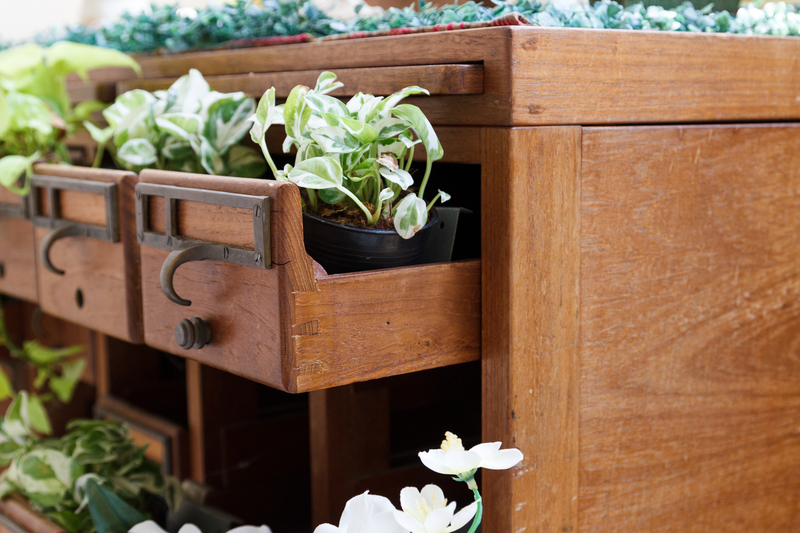As our global population continues to grow, so does the need for more environmentally-conscious living choices. Sustainable living practices, such as minimizing green waste, are essential for preserving our planet. Green waste comprises yard trimmings, food scraps, and other organic materials that often end up in landfills, emitting methane--a potent greenhouse gas. Luckily, there are numerous ways to substantially reduce this type of waste. Below, we explore ten effective strategies to lower green waste in daily life, helping you to embrace a more sustainable lifestyle.
1. Composting at Home
One of the most impactful methods to reduce green waste is to start a composting system at home. By composting organic materials like vegetable peels, fruit scraps, and leaves, you can convert waste into nutrient-rich soil. Benefits of composting include enriching your garden soil and reducing the need for chemical fertilizers. Whether you have a spacious backyard or live in an apartment, various composting methods, such as traditional compost piles or worm composting (vermicomposting), cater to any living situation.

2. Curbing Food Waste
Nearly one-third of food produced globally is wasted or lost. Reducing food waste not only lowers green waste but also conserves resources like water and energy. Start by planning meals, using leftovers creatively, and understanding food labels to avoid unnecessary disposal. Encourage sustainable practices in your household by educating family members on the importance of minimizing food waste.
Simple Tips to Reduce Food Waste:
- Shop with a list to avoid buying unnecessary items.
- Store food correctly to extend its shelf life.
- Use apps and tools to track food expiration dates.
3. Grasscycling
Grasscycling is an environmentally-friendly practice where you leave grass clippings on your lawn after mowing. This process reduces yard waste while nourishing your lawn with natural nutrients like nitrogen. It reduces the need for additional fertilizers and saves time spent on bagging and disposing of grass clippings.
4. Garden Smartly
Being mindful of how you garden can also contribute to reducing green waste. Consider implementing the below techniques:
Effective Gardening Practices:
- Plant drought-resistant and native plants to minimize the need for water and fertilizers.
- Use organic mulch to suppress weeds and reduce water loss.
- Implement permaculture principles to create a self-sustaining ecosystem.
5. Upcycle Organic Materials
Upcycling involves creatively reusing materials that would otherwise be discarded. For instance, you can turn food scraps into new dishes or use organic materials for arts and crafts. This practice not only prevents waste but also promotes creativity and resourcefulness.
6. Participate in Local Community Gardens
Community gardens provide a sustainable way to manage organic waste. Participate by adding your organic scraps to the communal composting system, which benefits all garden users. This initiative not only reduces waste but also fosters community spirit and education on sustainable practices.
7. Support Local Farmers and Markets
Purchasing locally-grown produce helps to reduce green waste by minimizing packaging and transportation emissions. Local farmers often use sustainable practices that result in less waste. Furthermore, frequenting farmers' markets can encourage you to buy only what you need, reducing the likelihood of food spoilage.
8. Implement Bulk Purchasing
Buying in bulk can decrease the packaging waste generated from individual items. Reuse jars and containers to store bulk items such as grains, nuts, and spices. Many bulk stores also allow you to bring your own containers, which further reduces waste.
9. Educate and Involve Others
Spread awareness about the importance of reducing green waste and the methods available to achieve it. Host workshops, join local environmental groups, or simply share tips with friends and family. The collective effort can significantly impact reducing environmental waste and contribute to a sustainable future.

10. Leveraging Technology for Waste Reduction
Innovations in technology are making it easier to live sustainably. Various apps and devices can help track food inventory at home, offer composting tips, and provide reminders about waste management schedules. Engage with online platforms and communities focused on sustainable living for ongoing support and ideas.
Incorporating these strategies into your daily routine can significantly reduce your green waste footprint. By committing to sustainable living practices and encouraging others to follow suit, you help sustain our world for future generations.
Conclusion
Adopting techniques to lower green waste is a crucial step in the journey towards sustainable living. With these ten effective methods, you can make a positive impact on the environment while enjoying the benefits of reduced waste. Whether you are composting at home, engaging in grasscycling, or carefully planning your meals, every action counts in our collective effort to protect our planet.